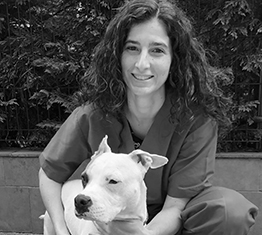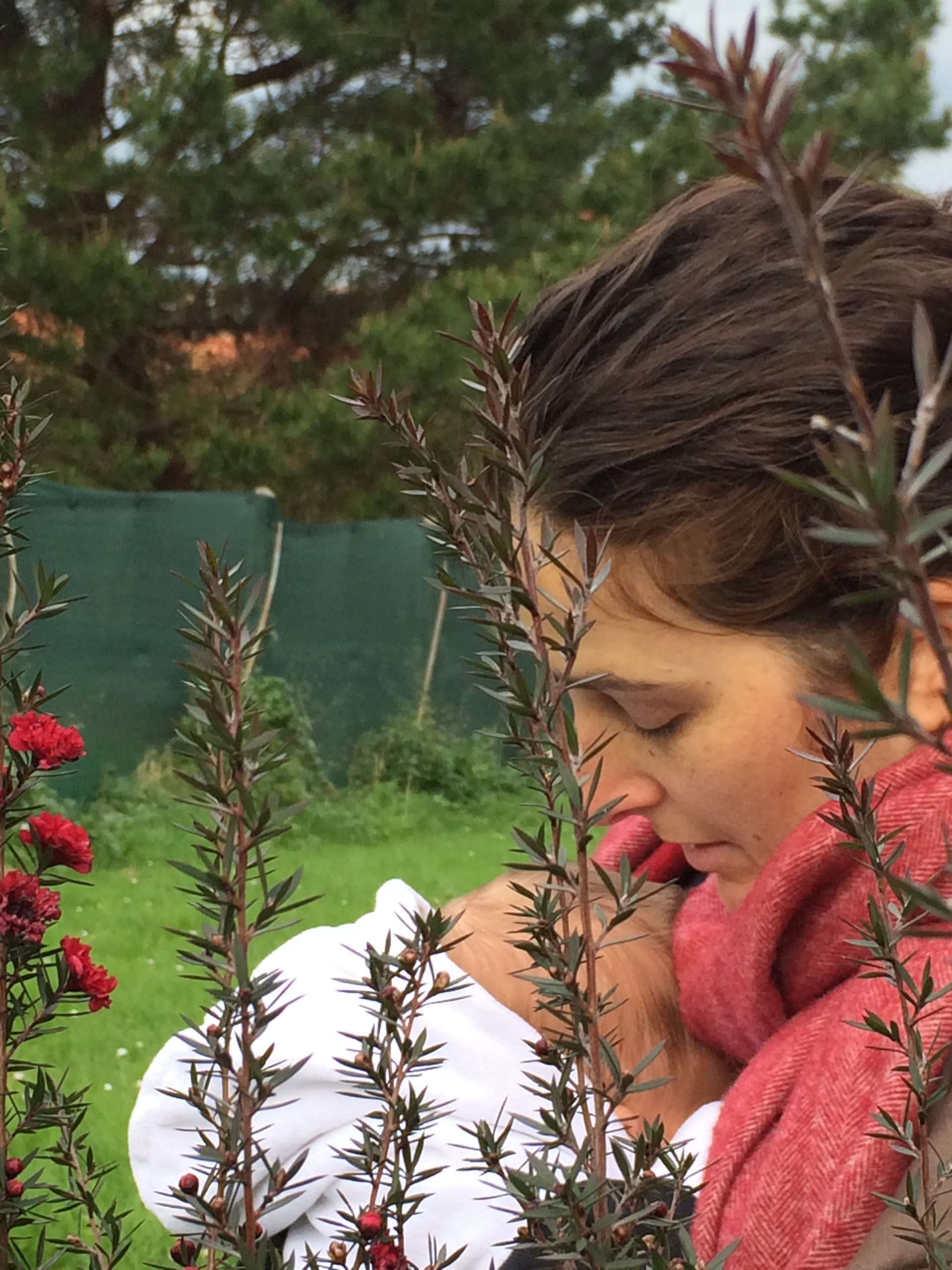 Dr Diana Palacios is a clinician, was co-owner of a leading veterinary hospital with 20 employees, 13 of them veterinarians and today is the practice manager there. But first and foremost she is the mother of a 4-year-old boy. In a profession that’s 70% women, her personal experience can be a good example for many veterinarians who are considering becoming mothers.
Dr Diana Palacios is a clinician, was co-owner of a leading veterinary hospital with 20 employees, 13 of them veterinarians and today is the practice manager there. But first and foremost she is the mother of a 4-year-old boy. In a profession that’s 70% women, her personal experience can be a good example for many veterinarians who are considering becoming mothers.
Have you noticed any difficulties in your work as a woman and hospital owner?
When we opened the hospital with my partner, he was a well-known vet and I wasn’t. In the beginning, it was very obvious that the veterinarians who referred cases to us trusted him more, I suppose because I had fewer years of practice. Over the years we’ve become more equal in experience and yet some still seek validation from my partner. I can’t say for sure whether it is because I am a woman or not.
With clients it is different, they are used to dealing with a lot of women veterinarians.
You made the decision to become a mother when the hospital was up and running at full speed. What were the biggest difficulties you encountered?
First of all, I didn’t consider becoming a mother until I had an acceptable work schedule with a steady shift and few emergencies. I was working full time until week 37 due to an administrative issue with my health insurance company. Although I was more tired than usual, I felt fine.
Then I went back to work earlier than planned when the baby was only 3 months old. But I negotiated the possibility of working part-time for twice the number of days I had left on maternity leave. I figured that the baby wouldn’t notice my absence as much as if I had gone back to work full time from one day to the next.
And on a personal level, what did it mean for you? Did you find yourself in conflict with your profession when you became a mother?
Obviously, if it had been at any other time in my career I would have used up all my maternity leave. I would have spent much more time with my son. But at that time I couldn’t because the hospital was also mine, as an owner and it was my responsibility. I also felt a sense of duty towards my colleagues who were covering my leave.
You experience conflicting feelings: on the one hand, the instinct to look after the child makes you feel like a bad mother for “abandoning your baby”, but on the other hand you feel good on a personal level for being able to work doing what you love even for three or four hours, and get out of “mom” mode.
Do you think that being a mother can slow down the progression of female veterinarians?
Absolutely. You’re not held back by the company, nor by the fact that you own a veterinary clinic. You are holding yourself back: you have to work the same hours a day and you have to take care of your child. You can continue to do some courses but it’s much more difficult to attend all the congresses and classes you’d like to. If you sign up for everything, you don’t even see your child.
I do some weekend courses, but I’d never do a postgraduate course, for example, because I wouldn’t feel good being away from home for so long.
And how do you organise everything when you attend a congress or a course, or even just to study?
I’m lucky that my partner can take care of our child, but yes, I take hours anywhere I can get them. I take advantage of when our son is in daycare or at school, I sign him up for summer camps, etc.
I am somewhat envious of some female colleagues without children who do postgraduate studies that I would love to do but I just don’t have time. I sign up for webinars that I sometimes finish and sometimes they last for days… I do what I can.
I would like to be able to fulfil myself professionally a little more, but being a mother also fulfils me a lot on a personal level.
Do you know female veterinarians who have also sacrificed part of their profession for their children?
Yes, and also too many who’ve missed out on a lot of their children’s lives due to their profession. I have a coworker who is the mother of a 4-year-old girl and a 1-year-old boy. When the girl was 2 years old, she went away for a week to train with a specialist and currently she’s doing online master’s degrees, and in-person weekend courses. This means leaving her husband and kids at home.
She’s happy because she is improving a lot professionally but she’s exhausted. In these cases, the family can be really supportive. If not, it’s really hard. And she often has feelings of guilt about having to leave the children to train in her off hours.
Do you think that a female clinical veterinarian necessarily needs help from the family to be able to be a mother?
Honestly, there are complicated factors at play. First, your partner is not a veterinarian, so it’s difficult to understand the hours and shifts of our beloved profession. It’s not the same as working in an office with hours from 8 a.m. to 4 p.m. as in a clinic where you sometimes get home at 9:00 p.m. and have to leave again an hour and a half later for emergency surgery.
What if she wants to be a single mother?
I think you can do it if the company is understanding and if you have help from the family. Obviously, we are veterinarians so we have to keep hours that are convenient to the public and even still, not all clients can come at the time you’re there. And if you are a specialist in something, you still have to do some afternoon shifts or an emergency.
Imagine if the child wakes up sick and has to stay home! If you don’t have help, how do you manage it? If you have a good financial position, you can hire a babysitter, but of course, this has economic costs that not all vets can afford.
What advice would you give to these veterinarians who are in the age range to be mothers?
Well, if they want to have a child, then go for it. In my experience, you wait a while to be a mother and then you realise that you would’ve done the same thing or just adapted if you’d had it younger. In the end, you manage.
I’ve also noticed that I am much more efficient in my tasks since I am a mother. As I want to leave at a specific time, I organise myself better at work and I don’t waste time with nonsense because I want to be on time to have dinner with my child, put him to bed or pick him up from school.
And let’s talk about Diana Palacios as the woman in charge. Do you consider working mothers?
Obviously, as a businesswoman I have to cover the needs of the hospital, but I put myself (readily) in their shoes and try to make life as easy as possible for them. Since I know that it’s easier to have a morning shift, I try to move the mothers to this schedule. If they have a sick child, then we cover their work as best we can until they can return. I know that if I respect their family and their needs, they will also respect the needs of the hospital. It’s a win-win.
And what do you think would be the ideal veterinary clinic to work for as a mother with young children?
The ideal would be to have a room where the children could be with a caregiver or even take turns with the other mothers. A space where you could calmly pump your breast milk and store it if you are breastfeeding. The problem is that in small centres with a low volume of personnel with these needs it isn’t very viable.
But in large hospitals, where 80% of the workforce are women and suddenly you have 4 or 5 of them with infants under one-year-old, it would be great. Getting back to work after maternity leave with the peace of mind of having your baby in the same building with someone who is taking care of them – it doesn’t matter anymore which shift you work.
You know that you can breastfeed whenever you want (if you do), see them, and feel less guilty about going back to work. It also makes clocking out a bit later easier to handle.








